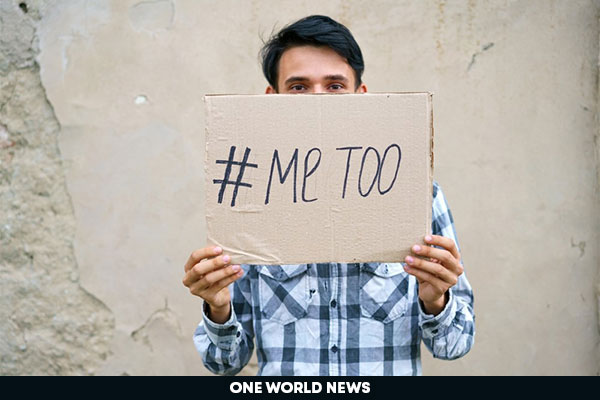Facts & statistics reveal men are suffering from domestic & sexual violence

Are cases of domestic and sexual violence against men increasing in India?
HIGHLIGHTS
- Despite multiple and shocking cases of male sexual abuse, rape laws under the Indian Penal System do not make enough room for male victims.
- Due to the barrier of societal shame and a lack of legal recourse, male victims are often terrified to come forward in India’s patriarchal society.
- During the lockdown in 2020, a men’s helpline ‘Save Indian Family’ received some 70 calls a day, each seeking respite from tormenting women(wife/partner).
- How the reality of domestic and sexual violence against men is unseen, unheard & unspoken in India
This may surprise many people and perhaps seem unbelievable after knowing a man being subjected to domestic violence in India, majorly because of the typical gender stereotypes that we have inherited for centuries.
When a man is beaten, abused, or harassed by his wife, not only his ‘mardaangi’ (masculinity) is questioned, but also, he is criticised and ridiculed for not being able to stand up to a woman.
Recently, a case between Johnny Depp and Amber Heard made so many shocking revelations in which the court awarded Depp substantially greater damages. It was a high-profile case that caught everyone’s attention realizing that no matter how much money you have got, or fame you have, men too can be the victims of domestic abuse, sexual harassment by a wife or an intimate partner.
MASCULINITY, PATRIARCHY AND SOCIAL STIGMA
“No one talks about men facing domestic violence comparing as perhaps they don’t think of it as a sensitive subject, but it is a fact that men are facing these issues and can be on the receiving end of gender-based crimes. In fact, many of them do not report violence and abuse due to the absence of gender-neutral laws. We have strong gender stereotypes, with such an upbringing that a man or a boy is always told to be strong and if he is being abused or assaulted by a woman, he is not only criticised but also considered weak to have it inflicted upon him,” said Jaipur based Divination Practitioner and energy healer Vibha Sharma.
Some may think that fighting for male victims may be a sign of supporting or encouraging patriarchy which ridicules me because being a men’s rights activist does not make me anti-women. We as human beings should give a voice to the victims, irrespective of their gender. I talk about men’s issues just because there are not enough people who are doing it and just because a person is a man, it does not mean that the person cannot be victimised,” Sharma added.
HOW INDIAN WIVES ARE HARASSING THEIR HUSBANDS?
“I get many clients which are mostly men who revealed that their wives deliberately delay meals to pick up the fight and force them to send their parents to an old age home. They are also threatened by their brother-in-law or father-in-law to do what their wife says,” Sharma said.
“One man complained that his wife takes all the earnings and refuses to entertain his family or care for his elderly parents. She makes him pay for her family and stops providing financial support to his family. Many men are facing this issue and are even blackmailed when their wives threaten to file false complaints against them of violence,” she added.
WHAT DOMESTIC VIOLENCE AGAINST MEN LOOKS LIKE IN OTHER COUNTRIES:
In the United States of America (USA), there is 1 in every 9 men who account for domestic abuse by their spouses or intimate partner and 1 in every 7 men has been the victim of physical abuse by their spouses or intimate partners.
In the United Kingdom (UK), 2 out of every 5 men account for domestic abuse.
In Australia, since the age of 15, 1 out of every 16 men has been subjected to domestic abuse which includes physical or sexual torture by their spouses, ex-partners, intimate partners, or cohabiting partners.
Now, here are some eye-opening stats and facts on how common these domestic violence cases are against men in India.
As per the data from The National Domestic Violence Hotline, 1 in every 10 men has experienced physical violence, physical assault, stalking and even rape by an intimate partner or acquaintance. And according to the recent multiple news reports, many young men are experiencing such types of violence.
As per the survey conducted of about 1000 married men ranging in age from 21 to 49 years old in rural communities of Haryana and NCR, it was revealed that gender-based violence affects 52.4% of married men. Also, 51.5% of men face some sort of torture or abuse by their spouses or intimate partners.
In the year 2018, the NCRB (National Crime Records Bureau) stated that over 100 kids were sexually abused in India every day. Not only this, but in some cases, the statistic on crimes/violence against women is even harder to gulp. In this regard, one side of this problem is always missing from such records and statements and that is crimes against men or male sexual abuse.
Read more: How Boys Become ‘Bhai’ for Their Best friend? Girls, Please Take some notes
According to the reports, emotional abuse is a very common form of marital or domestic violence against males (51.6%), with physical abuse coming in second with 6%.
Risk variables or factors involve poverty, low family income, improper education, nuclear family arrangement, and a perpetrator living under the influence of alcohol.
As per Section 498A of the Indian Penal Code (IPC) 1860, only a man can be held responsible for cruelty or violence against his wife. However, so far there is no legal clause in the legislation that makes a woman responsible for domestic abuse.
While women are more likely to consider suicide than males, more men die of suicide, according to multiple news reports and sources.
Indian wives come 3rd in the world in beating or harassing their husbands. Egypt and the United Kingdom (UK) rank first and second, respectively.
The existing legislation does not contain or provide males with any basic relief of having a male or female aggressor keep away from them (a restraining or protection order).
A recent study conducted by Save Family Foundation on husband’s health and domestic violence, interviewed over 1,500 husbands, in which it was found that economic violence 32.8 per cent is common, followed by emotional violence 22.2 per cent, along with physical violence 25.2 per cent, and sexual violence at 17.7 per cent.
REASONS WHY DOMESTIC VIOLENCE CASES AGAINST MEN GO UNREPORTED
There are many countries including India which don’t even recognize and accept that such things as domestic and sexual violence against men exist probably because these countries are male-dominated and influenced by patriarchal society. And, still, the funny thing is More than 40% of women and 38% of men said it was completely OK for a man to beat his wife if she mistreated his in-laws, ignored her home or children, went out without notifying him, refused sex, or didn’t cook adequately, according to government the recent pollsters. Not only this, but over 77% of women in four states justified hitting their wives.
However, these are the multiple reasons for which men often do not reveal the violence they face from their spouses or from their intimate partners.
General Stereotypes Against Males
Fear Of Fake Cases
Societal And Family Pressure
Denial
NEED OF THE HOUR
Today, gender-neutral laws are needed for the hour, as in many cases, men have falsely been accused of rapes, sexual assault, and domestic violence. The term domestic violence doesn’t indicate that only women are or can be the victim of it, as men can also be the victim and not the only culprit as domestic violence laws only protect women and not men.
“No matter how strong you are or how much fame and money you have earned, domestic violence against men is gradually increasing day by day. Men who are suffering this don’t complain because they are already tired after coming home from a busy hectic day and don’t find the strength to fight the battles with their partner. What I believe is that if a man, a father, or a son, commits suicide, then it is not because to end life. They commit suicide only to get rid of their sufferings”, Sharma said.
Read more: Love over Lust: Know the signs of relationship addiction
Countless men who are victims of psychological torture or domestic abuse by their wives have been approaching many men’s helplines or The National Domestic Violence Hotline to seek legal advice on how they can continue their family life without harassment or any kind of violence.
CONCLUSION
Today, the time has changed a lot and due to westernisation and modernization, culture, societal values, and norms have also been changed. There was a time when men were seen as protectors of their family but nowadays, both men and women are equally working, handling responsibilities, raising, and managing their houses with equal contribution to their incomes.
Even in a patriarchal or male prevailing dominance in society, if there are cases of men being abused then perhaps men are not dominant as they are perceived and also no longer stronger than women. They have now opened up about the domestic violence they face in their own homes and have openly started sharing their pain, struggles, and agony.
The Indian laws should recognize that men facing multiple violence such as physical, sexual, emotional, and verbal abuse are a rising issue and a social problem. This can be recognized by creating strong laws with effective changes, and by creating awareness along by breaking stereotypes and preconceived notions.
After harassment and sexual assault, the male victims never remain the same where, in some cases, they take revenge, end up becoming rapists, commit suicide in order to end the dilemma and some decide to stay single with so much hatred for women.
According to multiple studies, men are facing domestic violence due to changing women’s roles, power, and status. Women are self-made, self-sufficient, and aware of their rights nowadays and such factors, together with education, changing values, gender roles, and norms, and enabling women to recognise that they are not inferior to men and that, in certain circumstances; they can be stronger and dominant than men.







